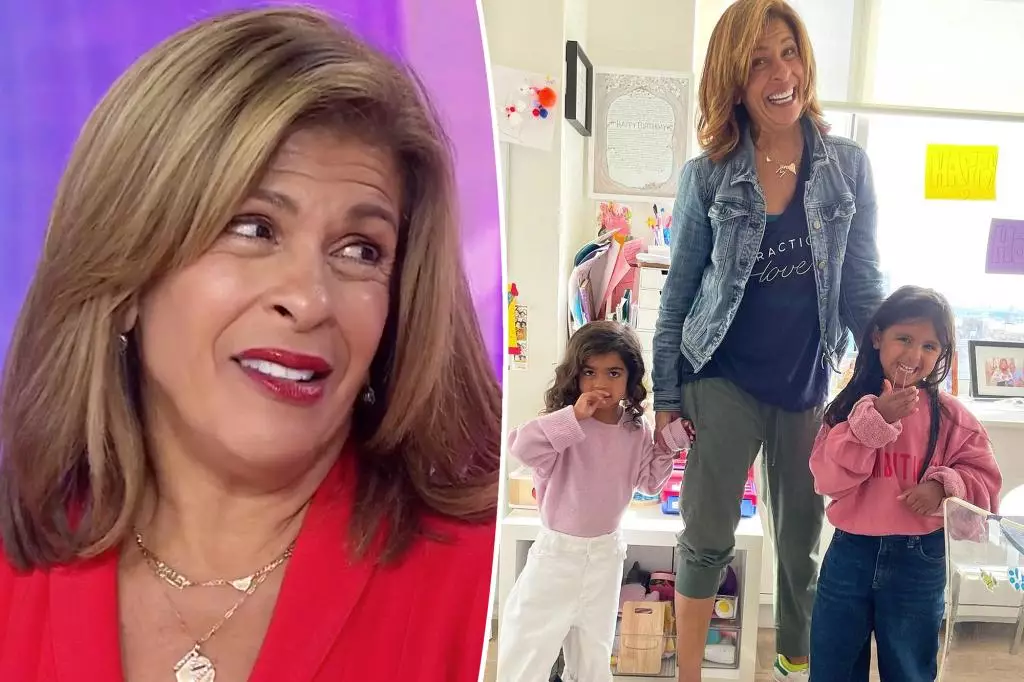In a world where stereotypes often overshadow individual experiences, Hoda Kotb emerges as a powerful voice for those navigating motherhood later in life. The well-known ‘Today’ show co-anchor has become an inspiration, notably addressing assumptions regarding her status as a mother of two young daughters. At 60 years old, Kotb embodies the notion that motherhood is not defined by age, but rather by love, commitment, and the lessons imparted to our children.
During a recent segment of “Today with Hoda & Jenna,” Kotb candidly shared her experiences with viewers who mistakenly considered her a grandmother. Her discussion sheds light on the delicate nature of identity in motherhood and the expectations society has formed around it. When one viewer sought advice on correcting people who assume she is not their mother, Kotb encouraged not only active correction but also understanding and compassion in these interactions.
Embracing the Role of a Proud Mother
Kotb’s philosophy is marked by an important emphasis on how our reactions shape our children’s perceptions. She stated, “I think you correct them. Calmly. Because I’ve learned that your daughter won’t be reacting to what the person said — she’ll be reacting to how you’re reacting.” This insight underscores the idea that parental attitudes greatly influence children’s self-esteem and sense of belonging. Kotb aims to establish a clear connection with her daughters, ensuring they understand she is their mother and protector, and this is particularly poignant in a society that often prioritizes youthfulness.
Moreover, her co-host, Jenna Bush Hager, humorously articulated the broader spectrum of motherhood, highlighting diverse experiences that exist within parenting. This exchange not only lightened the conversation but also showcased the camaraderie and support that comes with shared motherhood experiences — age notwithstanding.
Kotb’s candidness goes beyond personal anecdotes; it also fuels a discussion about societal perceptions of parental age. She adopted her first daughter, Haley, at the age of 52, followed by her second daughter, Hope, at 54. Each of these milestones is a testament to the idea that fulfilling family life does not adhere to rigid timelines. As Kotb reveals, “some moms are older, some moms are younger, some are taller, some are shorter,” we are reminded of the diversity that exists among families, which needs to be celebrated.
Her writing in a Real Simple column further cements her belief that these conversations are not merely about addressing awkward moments; rather, they are rooted in a mother’s pride and the desire to empower her children. She and Bush Hager echo a common sentiment that communicates to their daughters — a celebration of their journey as mothers.
Despite the joys of older motherhood, Kotb has also faced challenges, including public scrutiny and judgment. The shared experiences of older parents often involve navigating a complex landscape of societal expectations. However, her ability to openly discuss these hurdles signals resilience and a willingness to challenge norms.
Hoda Kotb offers a refreshing perspective on motherhood that transcends age-related stereotypes. By addressing misunderstandings with grace and pride, she encourages a generation of mothers to embrace their unique journeys, ensuring that love remains at the forefront of the maternal experience.

